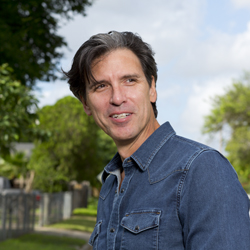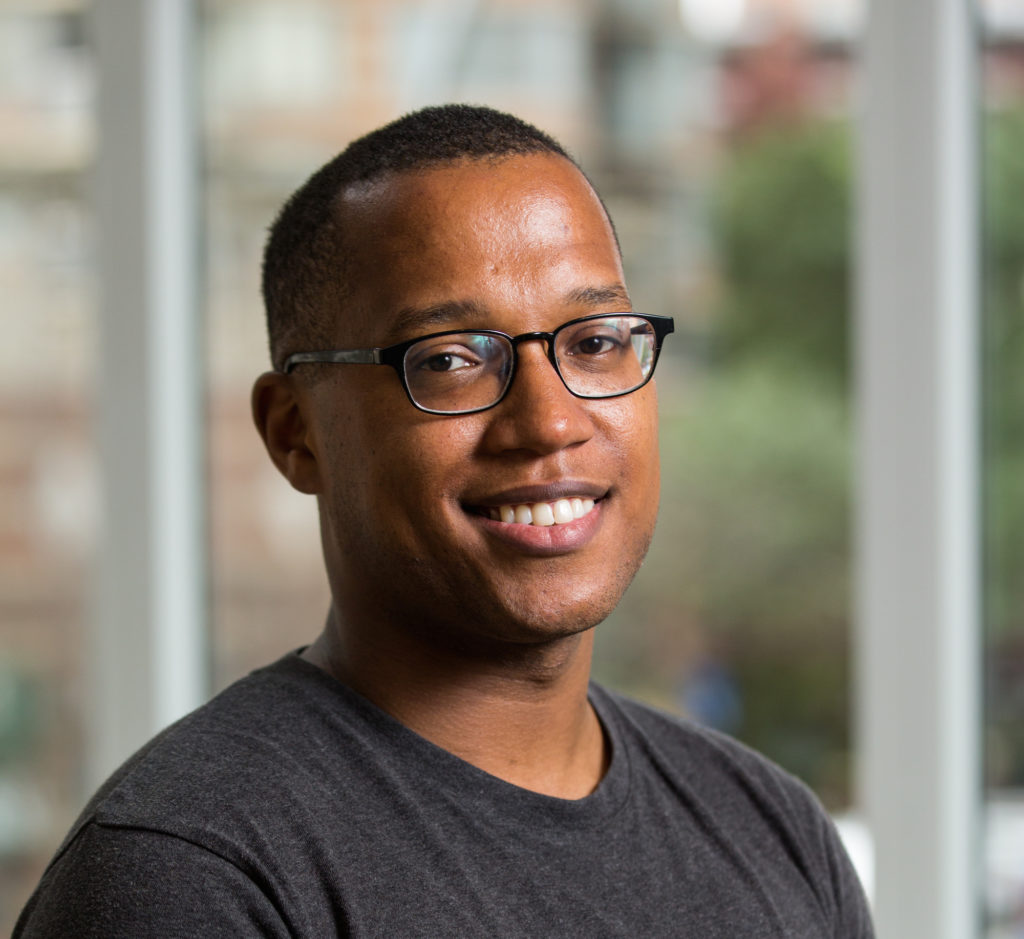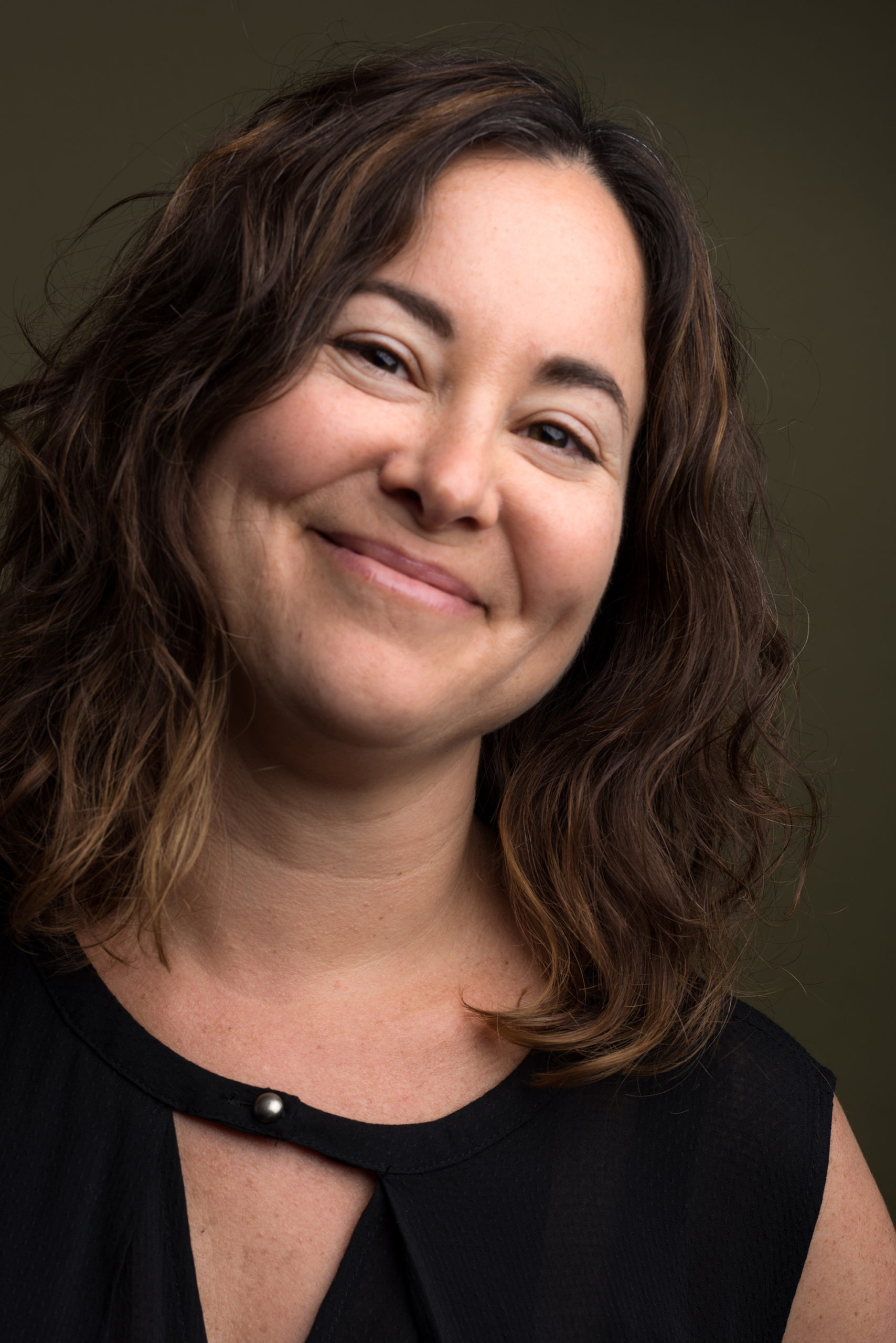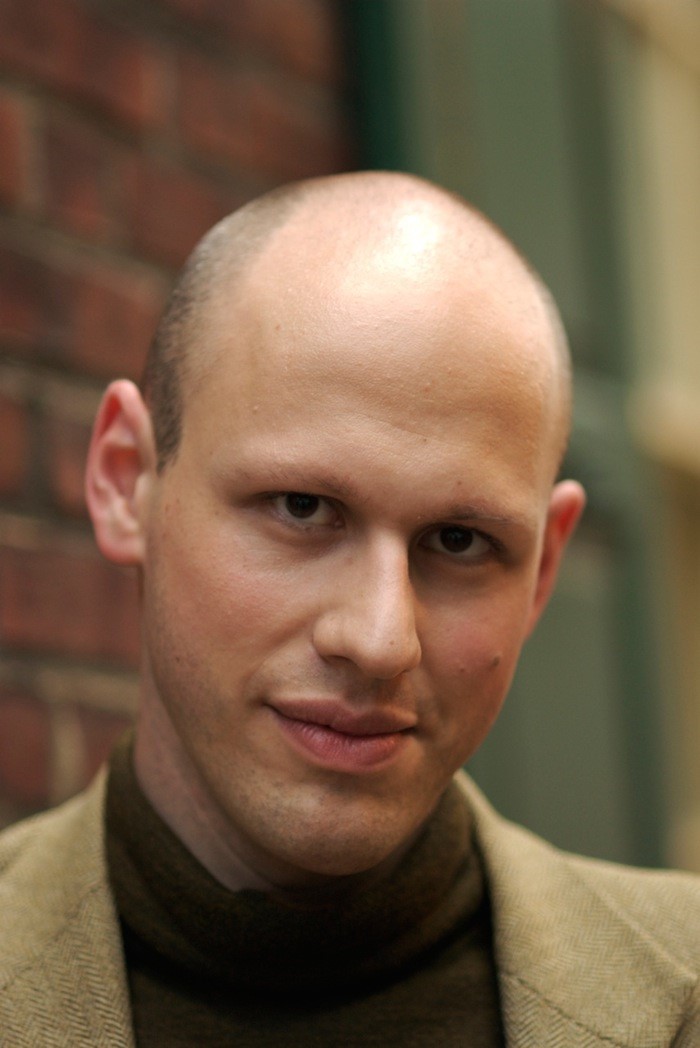AUSTIN, Texas — The father of the creative thinking technique “brainstorming,” Alex Faickney Osborn once wrote, “Creativity is so delicate a flower that praise tends to make it bloom.”
Since 1925, the John Simon Guggenheim Memorial Foundation’s annual award has aimed at fostering such growth by providing scholars with creative freedom. Each fellowship grants individuals time and money to explore new ways to enhance their scholarship and “add to the educational, literary, artistic, and scientific power of this country, and also to provide for the cause of better international understanding.”
This year, four faculty members from the colleges of Fine Arts and Liberal Arts at The University of Texas at Austin were among the 175 artists and scholars awarded Guggenheim fellowships from a pool of nearly 3,000 U.S. and Canadian applicants. Their projects and creative scholarship are detailed in the Q&As below.
Oscar Cásares, Associate Professor of English
Tell us about your project and what you’ll be doing with your fellowship.
 My plan is to work on a new novel that would also function as a lexicon of the U.S.-Mexico border. While overseeing the translation of my most recent novel, “Where We Come From,” I was reminded of how utterly rich the language is throughout the borderlands. After my editor had the novel translated to Spanish, it was my job to translate it to the Spanish of the border — the lower Rio Grande Valley to be more precise — where getting your idea across very often means speaking in two languages at once. The idea here is to define a series of terms used along the border and for the entries to be explained in short narratives that are interconnected and together create a much larger and complex story.
My plan is to work on a new novel that would also function as a lexicon of the U.S.-Mexico border. While overseeing the translation of my most recent novel, “Where We Come From,” I was reminded of how utterly rich the language is throughout the borderlands. After my editor had the novel translated to Spanish, it was my job to translate it to the Spanish of the border — the lower Rio Grande Valley to be more precise — where getting your idea across very often means speaking in two languages at once. The idea here is to define a series of terms used along the border and for the entries to be explained in short narratives that are interconnected and together create a much larger and complex story.
What does it mean for your creative research for you to receive this honor?
The Guggenheim Fellowship recognizes my writing over the last 20 years and the promise the foundation sees in my next project. The award will allow me time to fully dedicate myself to writing this next book. It’s been a tremendous honor to see my name alongside so many talented people in their respective fields.
How will your work within this fellowship strengthen your scholarship and teaching at UT?
I know that everything I write ends up influencing how I teach my writing workshops. Having this extended period of time to stay engaged in my work means that I’ll have that much more to share with my students about the same challenges that they’re dealing with in their own writing.
How do you view the relationship between creativity and learning?
For me, the relationship between creativity and learning comes down to helping students to understand the strength in their own voices and then identify the stories they need to tell.
Branden Jacobs-Jenkins, Associate Professor of Practice in Playwriting, Department of Theatre and Dance

Tell us about your project and what you’ll be doing with your fellowship.
I’m going to be doing a research deep dive into the form of the “history play,” and then I’m going to try and write at least two — but if I’m lucky, maybe I’ll wind up with some sort of epic multiplay saga. The history play is generally thought of as dramatic retellings of significant historical events and considered one of the three main genres of Western drama — alongside tragedy and comedy — though technically the youngest. When we think of history plays now, we think of Shakespeare, who is really the undisputed champion of the form with his “Henriad.” I’m hoping to do something analogous in an American context.
What does it mean for your creative research for you to receive this honor? What will it allow you to do that you may not have been able to do otherwise?
It’s a huge honor because it will give me the resources and freedom to explore and develop something at my own pace and on my own terms. As a professional theater artist, your work tends to be “commissioned” by theaters or institutions, which means you’re constantly having to engage with this other entity — however sympathetic or not — over what the work can or can’t be and how quickly it can be made and under what material constraints. In this situation, I am basically being given the gift of freedom to set my own agenda, my own directives and produce whatever I want to do and just see what happens. That room to play and experiment and discover and fail and fail better is invaluable.
How will your work within this fellowship strengthen your scholarship and teaching at UT?
Any opportunity I get to dive deeply into theatre history and to acquaint myself with specific genres or forms becomes an opportunity to share those riches with my students. I’ve been at UT for only a year now, but in my first semester I taught a class on adapting Greek tragedy that was inspired by my own recent creative engagement with that form and those plays. I think the students really took to it. So, I wouldn’t be shocked if there was a class on history plays on the horizon… I’m also always encouraging students to continuously challenge and deepen their own understandings of what they do and to build that constant “refreshing” into their individual creative practice. I guess here’s an instance of me trying to teach by example.
How do you view the relationship between creativity and learning?
In order to be creative, you can’t stop learning. Every act of creation is a voyage into the unknown, into newness, into the future and into new ideas. That necessitates learning. It’s in the act of creating. That’s what it has to be… Among the many things the arts — and especially theatre — can be, edifying and educating loom large. We often seek out literature and theatre because we are trying to learn how to be better, wiser and/or happier people. How to be stronger, how to be braver. And so every artist may not necessarily have an obligation to teach, but whatever they’re doing, the fact that a stranger might encounter it and you might wind up changing her life is a radical thing and a huge responsibility.
I feel the same way about teaching. You don’t always know who’s going to walk into your classroom and how they’ll walk out, but you have a responsibility to this person, on their journey to become fuller people. So, you have to do everything you can to give them the best tools for that journey — at least while you have their attention. In that way, teaching and writing aren’t necessarily such separate impulses for me.
Lisa Olstein, Professor of English
Tell us about your project and what you’ll be doing with your fellowship.
 While on fellowship, I hope to complete my next collection of poems, exploring through the intersection of ode, elegy and erasure how it feels and what it means to live in the unease of the American present, and how language itself acts as both archive and enactor of individual and collective consciousness. I’m also hoping to begin research for a new nonfiction project having to do with dreams and dreaming.
While on fellowship, I hope to complete my next collection of poems, exploring through the intersection of ode, elegy and erasure how it feels and what it means to live in the unease of the American present, and how language itself acts as both archive and enactor of individual and collective consciousness. I’m also hoping to begin research for a new nonfiction project having to do with dreams and dreaming.
What does it mean for your creative research for you to receive this honor?
It’s an honor to receive the foundation’s support and join a list full of thinkers and makers whom I deeply admire. I hope their vote of confidence will be an encouraging whisper in my ear as I immerse myself in new work, and it’s that opportunity for immersion that I’m most grateful for. In general, I appreciate the variety that the balancing act of teaching, writing and mentoring provides, but there are possibilities inherent to sustained time and attention that just can’t be replicated without it. I’m very much looking forward to having extended time to focus deeply on my creative work, to seeing what immersion allows for and invites in.
How will your work within this fellowship strengthen your scholarship and teaching at UT?
For me, being a practicing writer is integral to being a teacher of creative writing. The delights and challenges, conceptual explorations and nitty gritty details of my own practice inform, trouble and energize my teaching in all kinds of direct and indirect ways. In addition to everything I hope I’ll learn as part of my ongoing, daily education as a writer, I know how important time off from teaching is to good teaching in a creative writing context. If you’re too distant from your own practice, it’s easy to lose the thread of the whole endeavor.
How do you view the relationship between creativity and learning?
They’re inseparable, and both speak to vital ways of being alive.
Yevgeniy Sharlat, Associate Professor of Composition, Butler School of Music
Tell us about your project and what you’ll be doing with your fellowship.
 The project that will keep me occupied during the fellowship period and beyond is an opera: a modern-day retelling of the Pygmalion myth, only the creator is a woman, and her “sculpture” is artificially intelligent. My creative partners are the terrific Boston-based mixed quartet called Hub New Music and Grammy-winning soprano (and no stranger to Austin) Estelí Gomez. We are planning a workshop premiere of the opera during the 2021-22 season in New York.
The project that will keep me occupied during the fellowship period and beyond is an opera: a modern-day retelling of the Pygmalion myth, only the creator is a woman, and her “sculpture” is artificially intelligent. My creative partners are the terrific Boston-based mixed quartet called Hub New Music and Grammy-winning soprano (and no stranger to Austin) Estelí Gomez. We are planning a workshop premiere of the opera during the 2021-22 season in New York.
What does it mean for your creative research for you to receive this honor? What will it allow you to do that you may not have been able to do otherwise?
Because of the very busy teaching schedule, I have only been able to take on commissions for medium-length chamber works. All along, I’ve been itching to write an opera and to get back in touch with my thespian past — music-directing and composing shows for Yale Cabaret. This fellowship will finally help me fulfill this desire.
How will your work within this fellowship strengthen your scholarship and teaching at UT?
That is a great question! Over the last decade, I’ve realized the immense potential, some of it yet untapped, that exists at the College of Fine Arts at UT — in creating experimental, technology-driven, boundary-pushing pieces that bring together different disciplines and aesthetics. The Cohen New Works Festival embodies that potential, but there can be more such initiatives that allow students from all of our units to collaborate and challenge each other. Many of my students have worked on such projects, inspiring me to do more in my own art. With this opera, I can now challenge myself more and apply the lessons learned in the process in my own teaching.
How do you view the relationship between creativity and learning?
For me, the creative process is built upon intangibles — ideas and goals that get hazier the closer you are to fulfilling them. After chasing these phantoms — finally, a performance. And in that one instant, through collective effort, something unexpected and mysterious is revealed to you for a brief moment of clarity — or not. In any case, you feel like you’ve learned a thing or two. You’re more certain about “how to,” but “what” is still ever-more elusive. So, to answer your question: Creativity can teach, but there must be more efficient ways to learn.



